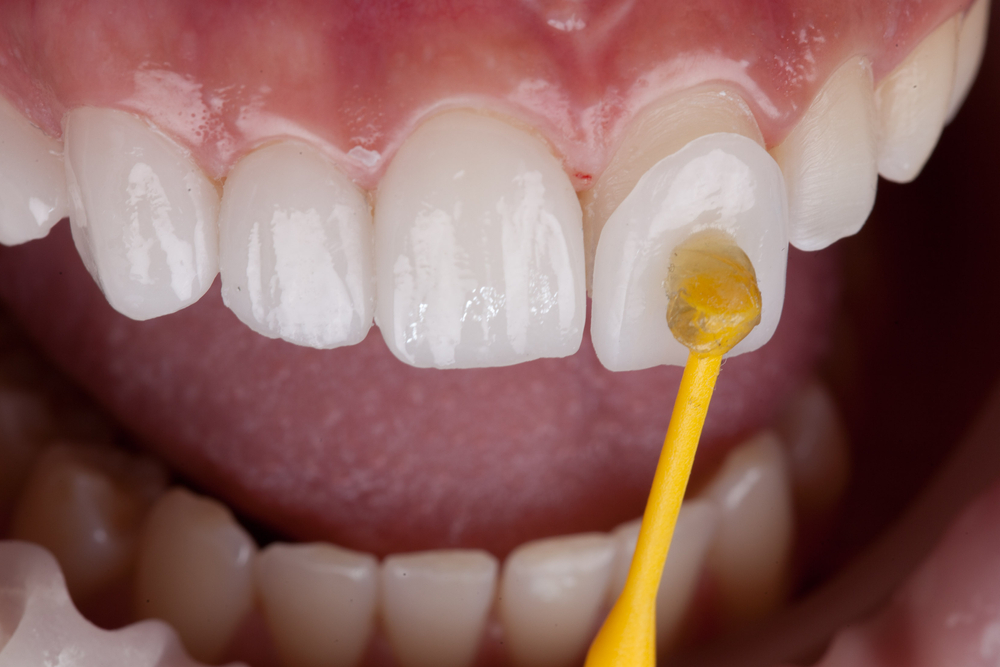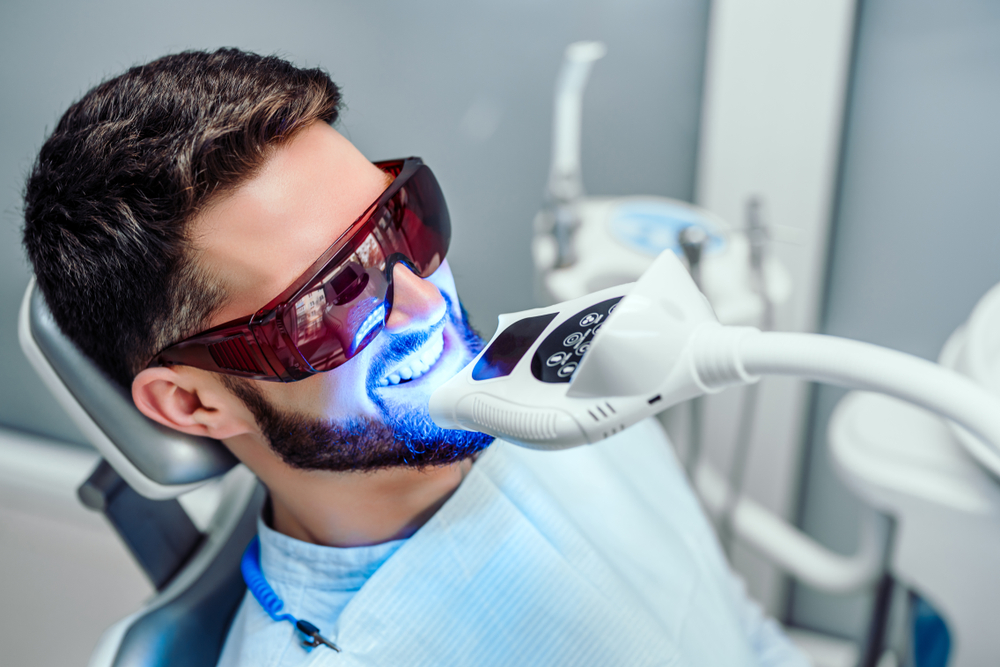At Smile Science Dental Spa in Glendale, AZ, we often have patients coming in with concerns about tooth sensitivity. “Why does my tooth feel sensitive when I eat something cold or hot?” they ask. It’s a common issue and one that our dedicated team, led by Dr. Richard Dawson and Dr. John Turke, is more than capable of addressing.
Tooth sensitivity, scientifically referred to as “dentin hypersensitivity,” affects many individuals at some point in their lives. Before diving into ways to manage this condition, it’s essential to understand what causes it.
Why Tooth Sensitivity Happens

Tooth sensitivity, or “dentin hypersensitivity,” occurs when the dentin – the layer underneath the tooth enamel – becomes exposed, leading to discomfort or pain when consuming hot, cold, sweet, or acidic items.
Your tooth enamel acts as a protective barrier, but when this barrier is compromised, the dentin becomes exposed. Several factors can contribute to this issue. Tooth decay, worn fillings, gum disease, fractured teeth, or worn tooth enamel can all lead to sensitivity. Another common cause is tooth whitening treatments. These treatments can cause temporary sensitivity, particularly if they are overused or misused.
Moreover, tooth sensitivity can occur after routine dental procedures like fillings, crowns, or professional cleanings. However, this type of sensitivity is generally temporary, subsiding after a few days or weeks.
Other contributing factors to tooth sensitivity include excessive plaque, tooth grinding, and brushing with a hard-bristled toothbrush. Even diet plays a role – the frequent consumption of acidic foods and drinks can gradually wear down your enamel, exposing the dentin beneath.
Managing Tooth Sensitivity
Once you have identified the reasons behind your tooth sensitivity, it’s easier to find a solution to manage it. Below are some suggestions:
1. Good Oral Hygiene Practices
Maintaining good oral hygiene is the first step in managing tooth sensitivity. It helps to remove plaque build-up, which could lead to tooth sensitivity. Make sure to brush your teeth at least twice a day, floss regularly, and rinse your mouth with an antiseptic mouthwash.
When brushing, consider using a toothbrush with soft bristles to avoid damaging your tooth enamel and gums. Also, using toothpaste specifically designed for sensitive teeth can help. Brands like Sensodyne and Colgate offer toothpaste that works by either blocking the tooth’s tubules or numbing the nerve endings, reducing sensitivity.
2. Regular Dental Check-ups
Routine visits to your dentist are crucial in managing tooth sensitivity. At Smile Science Dental Spa, we conduct a thorough dental examination to identify the underlying cause of your sensitivity. If the cause is tooth decay or a fractured tooth, Dr. Dawson or Dr. Turke may recommend fillings or crowns to address the issue.
3. Dietary Changes
Try to avoid consuming acidic foods and beverages like citrus fruits, wine, and carbonated drinks. They can gradually erode your tooth enamel, leading to dentin exposure. If you can’t avoid them completely, try to limit their consumption and brush your teeth afterwards, but not immediately, as brushing straight away can cause further enamel erosion.
4. Avoid Teeth Grinding
Teeth grinding can wear down the enamel and lead to sensitivity. If you grind your teeth, especially during sleep, you might consider getting a mouthguard. This device creates a barrier between your upper and lower teeth, thus protecting them from damage.
5. Dental Procedures
In severe cases, when other solutions are not effective, your dentist may recommend a dental procedure. These might include bonding, inlays, or surgical gum grafts to protect the exposed root surfaces, or a root canal treatment if the sensitivity is severe and persistent.
At Smile Science Dental Spa, Dr. Dawson and Dr. Turke are committed to finding the right solution for your tooth sensitivity. Whether that’s recommending a new oral care regimen or providing a specific dental treatment, we ensure that every patient receives the best care possible.
Conclusion
Tooth sensitivity is a common but manageable issue. With good oral hygiene practices, regular dental check-ups, dietary changes, and professional dental treatments, you can significantly reduce tooth sensitivity and continue to enjoy your favorite foods and drinks.
Remember, you don’t have to live with tooth sensitivity. If you are struggling with sensitive teeth, don’t hesitate to reach out to us at Smile Science Dental Spa. We’re here to help you get back to a comfortable and healthy smile.






